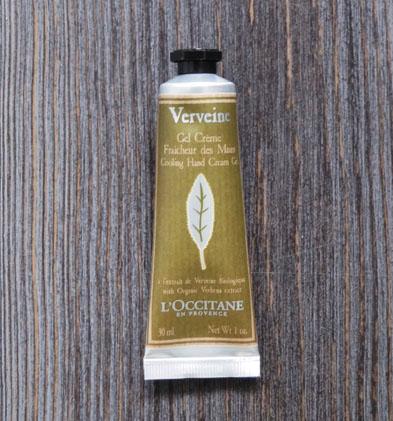
You can find them in drugstores, department stores and chain stores: cosmetic products and brands that claim to contain natural, herbal or organic ingredients. But what is really in such supposedly sustainable products? We took a closer look at 7 self-proclaimed green cosmetics brands.
Natural cosmetics sell well - this can be observed in drugstores and department stores, where one "natural" shampoo after the other is lined up in the cosmetics department. And Germany's largest market research company GfK also confirms the trend: In 2019, the demand for natural cosmetics was ten percent, and for natural cosmetics 8.5 percent.
But not everything that looks green is natural. Natural cosmetic brands not only want to convince with their supposed naturalness, but above all with elaborate advertising campaigns, stylish packaging and exclusive shops.
For the consumer, it is difficult to tell the difference between real natural cosmetics and near-natural cosmetics, because the terms are not legally protected in Germany. This means that manufacturers can label their products as "plant-based cosmetics" or "natural cosmetics" or use additives such as "natural ingredients", even if their products contain problematic substances that are harmful to the environment and health.
In this article you will learn how to distinguish natural cosmetics from real natural cosmetics. Recommended natural cosmetics manufacturers with ratings from the Utopia community can be found here: List of the best natural cosmetics manufacturers
These 7 cosmetic brands aren't as good as you might think
We therefore took a closer look at seven well-known cosmetics manufacturers who declare that their products consist of "natural ingredients", "substances inspired by nature" or "plant-based active ingredients", but which do not bear a natural cosmetics seal. We wanted to know: What substances are there that are not allowed to be found in certified natural cosmetics? And why are these substances problematic?
1. Lush - fresh, handmade cosmetics?
The colorful and fragrant shampoos, soaps and bath bombs from the cosmetics brand Lush largely do without plastic packaging, are vegetarian and some ingredients are even Fairtrade certified. In addition, according to the manufacturer, all products are not tested on animals.
The ingredients list of the products shows natural ingredients, but also "safe synthetic ingredients". The safety of such substances is debatable. One thing is certain: Synthetic ingredients must not be found in real natural cosmetics.
We took a closer look at the product: the hair care cream “Revive”. It contains butylphenyl methylpropional (also called lilial) - a liquid fragrance that resembles the smell of lily of the valley. The substance should be avoided, especially by allergy sufferers. In addition, Lilial is suspected of restricting reproduction and damaging the genetic material.
Another critical ingredient in the cream is PEG-100 Stearate. This is a surfactant that is mostly made from petroleum. Extraction endangers nature and animals. PEG can also make the skin more prone to irritation and trigger allergies.
Other Lush products contain parabens, UV filters that are considered hormonally effective, polymers (plastics in liquid form that are difficult to biodegrade) or synthetic musk fragrances that are suspected of triggering allergies, affecting the endocrine system and damaging nerves and nerves to cause liver. So Lush is far removed from natural cosmetics. We do not recommend the products.
Here you will find hair soaps with harmless ingredients, some of which are free of packaging: Hair soaps in the test: How to wash your hair without shampoo bottles
Less plastic packaging, less chemicals: Washing hair without shampoo is the trend – many people use hair soaps for this. We have four...
Continue reading
2. Yves Rocher - herbal cosmetics with natural ingredients?
Yves Rocher makes "plant-based cosmetics" with "100% plant-based active ingredients", uses partly recycled plastic, recyclable plastic and "96% paper from sustainable forestry" for its packaging.
According to the company, the brand is committed to the environmental foundation Fondation Yves Rocher for the reforestation of rainforests and does not carry out any animal experiments.
We took a closer look at the product: The “Hand Cream Anti-Pigment Spots SPF 20” contains the harmful ingredients: PEG-100 stearate, dimethicone and tetrasodium edta.
Other Yves Rocher products also contain synthetics in liquid form (such as the Hydra Vegetal Refreshing Peeling). According to Greenpeace, these are artificial polymers that get into the waste water through showers and sinks and end up in our rivers and seas, where they accumulate in the food chain and can ultimately even end up on our plates. In a broader sense, these are microplastics. (More on this in: What is microplastic? – A definition)
We could not find "100% herbal active ingredients" and therefore cannot really recommend Yves Rocher products.
3. L'Oreal Botanicals - with botanical ingredients?
The natural line "Botanicals" from L'Oreal has been available since spring 2017. According to the packaging, the products contain "no silicone, no parabens, no colorings" and "no ingredients of animal origin", so they are theoretically vegan. The products in the line are not certified as natural cosmetics.
We were surprised because the ingredients are really much less problematic than many other conventional brands and products.
We took a closer look: "Argan & Safflower Flower Rich Nourishing Shampoo". It contains PEG-55 Propylene Glycol Oleate, a surfactant that makes the skin more permeable - both for active ingredients, but also for pollutants. Such PEG derivatives are not only harmful to health, but also to the environment, since they are often made from petroleum.
The benzoic acid used for preservation, which is suspected of irritating the sensory organs, is slightly problematic. Although it is synthetically manufactured, it is a nature-identical preservative, which is why it is also permitted in certified natural cosmetics.

Unfortunately, other products in the Botanicals line contain surfactants that are harmful to the skin and synthetic polymers, i.e. plastics. The latter are not microplastics in the true sense of the word, as they do not exist in a solid form, but are water-soluble. However, environmental organizations consider them questionable because they are synthetic plastics.
More on microplastics and the potential risks associated with them: What is microplastics? A definition
Word has got around that tiny plastic particles are a problem in the environment. Cosmetics manufacturers have long claimed that they do not use microplastics.
Continue reading
4. Ethical Grooming from The Body Shop?
The Body Shop promotes sustainably sourced natural ingredients, naturally derived ingredients and eco-friendly synthetic ingredients.
However, the products from The Body Shop contain silicones, parabens, questionable dyes and surfactants, which must not be found in certified natural cosmetics because they are harmful to the environment and health. After all: According to PETA, the products are not tested on animals.
Here's what we looked at: Mango Body Butter contains PEG-100 sterate, a surfactant that can make our skin more prone to irritation and can trigger allergies. However, PEG-100 sterate is not only harmful to our health, but also to the environment. Because PEG (polyethylene glycol) is mostly produced on the basis of petroleum. The extraction of oil has devastating consequences for our climate and often destroys entire ecosystems.
There are also questionable dyes in the body butter:
This product alone shows: The Body Shop is far removed from natural cosmetics.
5. Natural ingredients at L'Occitane?
The products of the French cosmetics brand L'Occitane consist "preferably of natural ingredients". The company writes on its website that a quarter of its “200 natural ingredients” are certified organic. In addition, by 2025 all bottles would be made from 100% recycled plastic and committed to social projects.
We took a look: The "Verveine Gel Créme" for the hands contains chlorphenesin - a halogenated organic compound. According to the consumer center, halogen-organic compounds are partly harmful to health and partly toxic to the environment. Some can cause cancer, almost all accumulate in the environment. The hand cream also contains polymers, i.e. plastic that is based on petroleum and therefore must not be found in natural cosmetics.
Other products of the brand contain silicones and questionable surfactants - all substances that are not allowed to be found in certified natural cosmetics.
6. Palmolive Naturals - 100% Natural Origin?
Palmolive products are available cheaply in many discount stores and drugstores. The brand is part of Colgate and advertises in the "Palmolive Naturals" line that it respects "the natural balance of the skin" and "supports its natural moisture".
We did not find anything good about the brand, but a lot of ingredients that are anything but natural.
We took a closer look: The "Olive & Milk Cream Bath" contains, among other things, the synthetically produced substance Lilial. A fragrance that should be avoided by allergy sufferers in particular and that also impairs fertility in animal experiments. The product also contains the dye CI19140 (also called tartrazine (E102)), which according to the German Society for Skin Health eV can release carcinogenic amines and, according to the code check, can also cause allergic reactions and irritation.
In addition, petroleum-based surfactants and polymers - the classic: microplastics. These ingredients are of course forbidden in certified natural cosmetics.
7. Rituals - respect the planet?
The cosmetics brand Rituals advertises on the website measures for environmental protection that promote a sustainable future. In the future, the brand wants to save on packaging with refill packs (made of plastic), and already 90% of the ingredients are said to be of natural origin. "All ingredients should be good for the skin," says the website.
We took a closer look:
The deodorant "The Ritual of Samurai". It contains the synthetic fragrance Lilial, an allergen that can be particularly harmful to those with allergies and asthma.
In addition, polymers such as cyclopentasiloxanes and silicones are included, which may have hormonal effects, are difficult to degrade in the environment and accumulate in living organisms.
Both ingredients are not found in natural cosmetics. We would not claim that these are only ingredients that are good for our skin - and especially not for the environment.
You can find recommended deodorants without aluminum in this article: Natural cosmetic deodorant – 5 recommended brands
If you want to smell good without harming your health, you should not only avoid aluminum in deodorant: Conventional deodorants usually contain...
Continue reading
Conclusion: The difference between real natural cosmetics and natural cosmetics?
In Germany there are various certificates that help you to recognize genuine natural cosmetics. The BDIH, Ecocert and Natrue seals guarantee that a certified product only contains "raw materials of natural origin". So substances of vegetable, animal or mineral origin. Synthetic fats and oils, silicones, preservatives and fragrances are prohibited.
You should take a closer look at products that do not have a seal. If you are familiar with it, study the list of ingredients. Apps like Codecheck or Toxfox help everyone else. Using a barcode scan, they reveal which ingredients of the respective product are problematic and for what reason.
Read more about which ingredients to avoid here: The worst ingredients in cosmetics
Hormonally active substances, allergy-triggering fragrances, petroleum and palm oil - our everyday care products can contain substances that we would rather not...
Continue reading
You will find a large selection of recommended natural cosmetics in our leaderboards:
We present other recommended natural cosmetics brands here: ** Some of the links to sources of supply marked with ** or underlined in orange are partner links: If you buy here, you actively support Utopia.de, because we then receive a small part of the sales revenue . More info.
Do you like this post?
96034Thank you for your vote!






